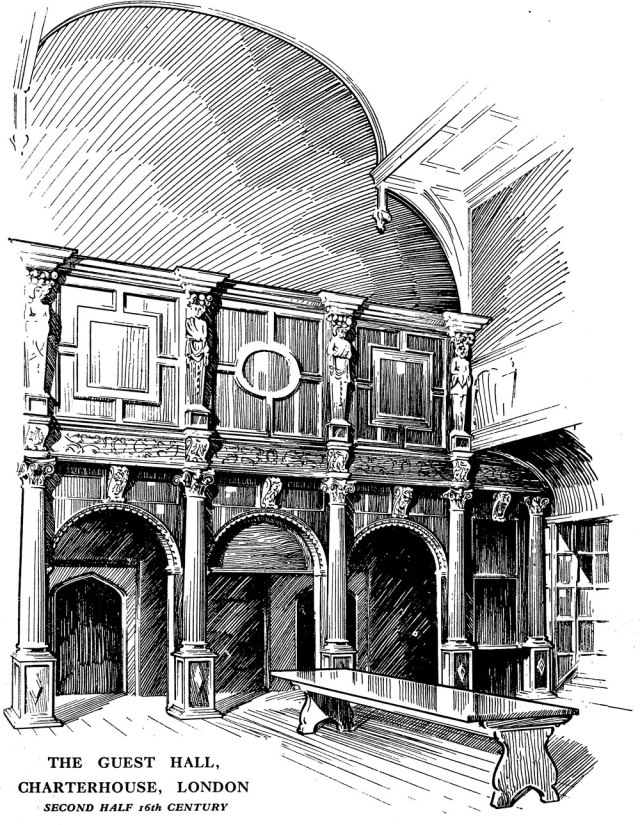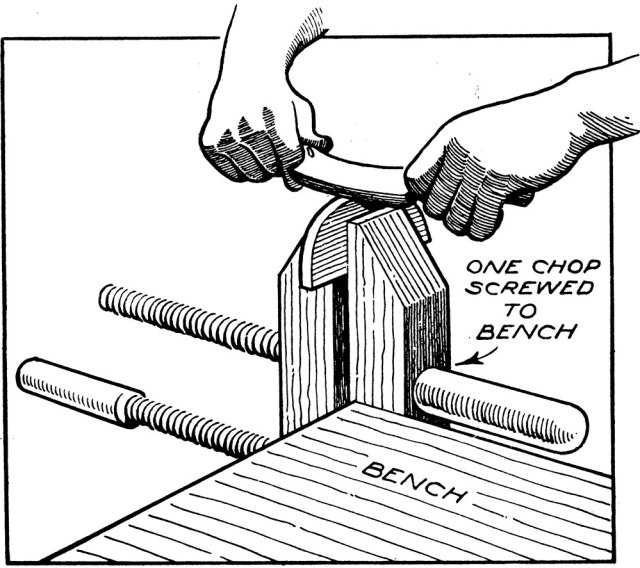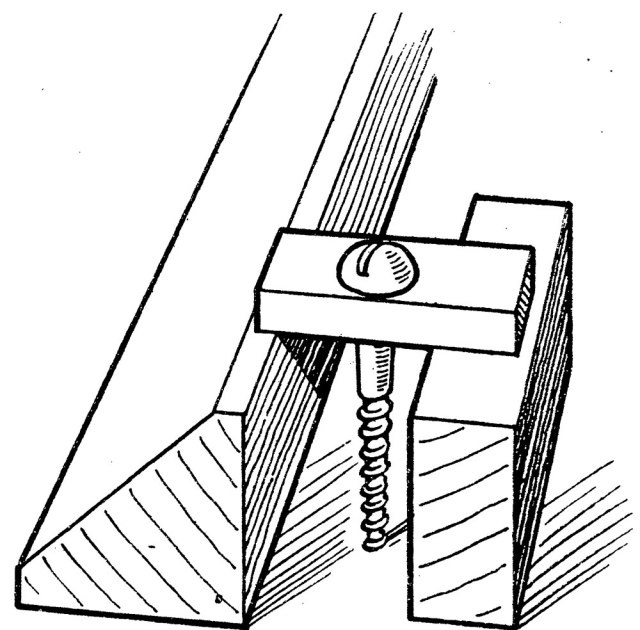
Editor’s note: For the next several weeks, we will feature some of our favorite columns from “Honest Labour: The Charles H. Hayward” years, along with a few sentences about why these particular columns hit the mark.
This column from 1937 is one of my personal favorites because of the poem:
“Work apace, apace, apace, apace;
Honest labour bears a lovely face;”
Try saying it out loud as you work (be sure no one is watching) and you can feel the rhythm of mortising or sawing flow through the syllables. Aside from that, I am deeply aligned with Hayward’s admonition that we should commit ourselves completely to something. That is what was missing from my life when I was a young journalist. For me, writing has always been important, but it doesn’t have the dizzying depth of woodworking, which involves all the senses. Hand skill. Memory. Geometry. Once I committed to woodworking, my path became clear. Or, as Hayward put it: “For we have to take in all we can and give out all we can, if we are to make a success of anything.”
Top that, Master Yoda.
— Christopher Schwarz
Honest Labour
Honest labour bears a lovely face
From time to time we come across men in their middle or old age whose faces show the stamp of an experience which has bred in them much wisdom and kindliness, setting them apart somehow from the ordinary run of men. We enjoy talking to them; their company is stimulating even when they are not very ready of speech. There is something so real and sincere about them, and their opinions are so well founded. We find them among farm workers, fishermen, cabinetmakers, cobblers, among workers of all trades just as much as among professional men, and always they have the one thing in common—hardworking lives. One of the sweetest singers among the Elizabethan poets wrote:
“Work apace, apace, apace, apace;
Honest labour bears a lovely face;”
Which perhaps puts its finger on their secret. And it is good, just now when holidays are over, to reflect a little on this matter of work.
***
Most of us have to work in order to live and, like sensible men, make the best of it. But it is only when we come across the man whom work has, as it were, seasoned like a piece of fine old wood that we begin to suspect that work may have more purpose in our lives than we give it credit for. Just as a man brings his own powers of hand and mind to bear upon the work he is doing, so does that work in turn influence him. It sets its mark upon him, in some cases even producing distinct, recognisable types—shepherd, stable boy, lawyer, doctor, we know how each can carry in face and bearing some reflection of his daily activities—but, whatever the work, it helps to mould the man. The more it demands of him, mentally or physically, the more it can do for him, toughening his fibre, strengthening his will, bringing out qualities which otherwise might have lain dormant all his life, fine qualities some of them, even rare qualities. Work can also twist and warp a man: it all depends, I think, upon our attitude towards it.
***

There are business men who optimistically placard their offices with such texts as: “There’s no fun like work,” but I would like to know how many of us believe them. Work is not fun. To call it fun is just one of those silly, superficial sayings which glance at a truth and then sheer away again. Work has its glorious moments, moments when we are working at the top of our form and thoroughly enjoying ourselves, but it also has its inevitable drudgery; the steady doing from day to day of a certain job, whether we like it or not, sometimes in the teeth of difficulty, sometimes in spite of our own inclination of the moment, simply doing it because it has to be done, as one of the necessities of existence. Herein lies its value, bracing us up in mind and body, bringing out qualities of patience and steadfastness which otherwise might be lacking. But we have tacitly to accept it and make an honest job of work if we are to reap the real good, the essential good, which is greater really than the weekly pay envelope.
***
Thomas Dekker, he wrote that “Honest labour bears a lovely face” knew what he was talking about, for he worked hard in order to live and was famous among his fellow poets and playwrights for his “right happy and copious industry.” The fact of the matter is that we are mainly unknown quantities, even to ourselves. We can only guess at our own powers. The full range and extent of them we simply do not know till ambition or necessity, through hard work, force us to develop them. Our minds and our wills are the very queerest things and need all the urge and all the stiffening they can get from the hard, unsentimental facts of existence before they will begin to show of what they are capable. Work brings a man to maturity, jostling him up against his fellow men in competition, sharpening his wits, developing his skill, whether in the handling of men or affairs or the handling of a tool, at the very least into the regular habit of industry. Work is not really the enemy which, when we are in holiday mood or suffering from illness or fatigue, it may sometimes appear. It is another of the instruments of our education to life, and often the sterner it is the more it brings out the worth of a man.
***
That is why men, who cannot from the nature of their work employ their energies as actively as they wish, are wise when they use part of their leisure in the work of their choice. We call it a hobby then, but many a man who has drifted casually into a hobby has found in it a lifework. In this, at least, he is his own master, and he may become a master in the highest sense, of a craft, of a science, or an art, if he gives himself wholeheartedly to it. That is the difficulty with most of us: we don’t give ourselves out enough. We are always holding back, making excuses when we come to the difficult bits for not being quite as thorough as we should. There is always a technique to be learnt, and pains and patience are needed to master it. Every step of the way cannot be equally interesting. When mankind tried to eliminate drudgery it invented machines, and brought boredom into the lives of the millions of men who have to do the little routine jobs in attendance on them while the machines do the real work. And boredom is worse by a long way, for it simply stifles us. Drudgery as a means to an end, and that the perfecting of a job, has to have its place, but if we really set our hearts on success we shall not grudge one moment of it.
***

So to all those of our readers who, as amateurs, are planning to carry on with their woodwork this winter, we would say: see that every job is as good and as thorough as you can make it from start to finish. Don’t stint your pains and don’t miss any opportunity, through careful study of our pages and by any other means within your power, of learning all you can about the elements of woodwork as well as about advanced processes. Any miscellaneous knowledge about timber, tools, furniture, whatever it is, that you gather by the way, will never come amiss. For we have to take in all we can and give out all we can, if we are to make a success of anything. And that applies to things far greater than woodwork; even to life itself, I think.